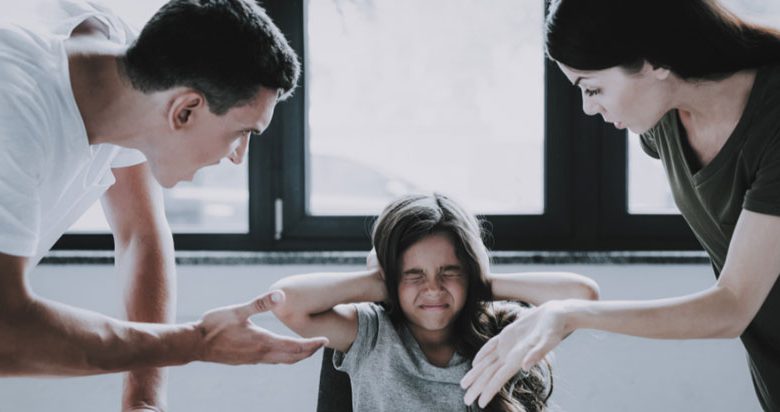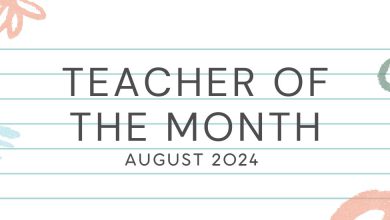Four Damaging Things Parents Say Without Realizing It

Four Damaging Things Parents Say Without Realizing It
Have you ever said something that you instantly wished you could take back? It happens to us all. But have you ever had the opposite experience? Have you ever been completely clueless about how your words affected someone else until they brought it to your attention? Unfortunately, this doesn’t only happen with other adults. Parents often say things to their children that have much bigger ramifications than they realize. Here are four damaging things that parents say to their children without realizing it.
1 – “Don’t be scared.” / “Stop crying.” / “Don’t get mad.”
The declarative “stop doing X” statements are SO easy to say. For instance, the phrase, “Don’t be scared,” is supposed to convey the thought, “There is no danger, I’m here, everything is going to be okay.” But what a child hears is exactly what you say: Don’t be scared. And even though you may be trying to help your child through a tantrum by saying, “Stomping your foot and shouting will get you nowhere in life,” your child simply hears a command to stop feeling.
We all have to learn how to manage our emotions — that includes adults — but suppressing them is not the way to do it.
So the next time your child has a big emotion, remember that the feeling itself shouldn’t be punished or diminished. Acknowledge their feelings, and let them know feeling the emotion is totally fine. Then work with them on molding their reactions to those feelings. That’s what can be hurtful (or even harmful) to others and themselves.
2 – “You make me so angry.”
Small children are not responsible for their parents’ emotions. Full stop.
Just like in the previous point, part of growing up for kids is realizing that their actions affect other people. But kids — especially preschoolers — are still learning.
Don’t get us wrong … it’s not fair. Your child will do plenty of irritating, annoying things. But making them responsible for your emotions doesn’t help anyone. They’ll either feel the undue burden of thinking they have to manage your emotions for you or push your emotional buttons on purpose to get a certain outcome. And we can all agree that we aren’t looking to saddle children with the responsibility of being a therapist or teach them how to emotionally manipulate people.
So again, just like in point number one, feel free to acknowledge how you feel. It’s okay to say that you’re frustrated or upset. But then demonstrate how to handle that emotion for your child by stepping away, taking deep breaths, or going for a walk. How you talk to your child about their behavior depends largely on their age. If they’re under the age of 3, they probably have no idea why you’re upset and won’t understand why they need to change at all. If they’re in preschool, start having discussions about how their behavior can negatively affect other people. But again, don’t punish them for something they didn’t know or understand. Work with them on changing the behavior until they’re old enough to remember that their actions have negative consequences. (That’s usually around ages 5 or 6.)
3 – “You always …” or “You never …”
This is advice that marriage counselors will give couples who are fighting: “Never say never.” Declarative statements like, “You never pick up your toys,” or “You always act so mean in the morning,” are actually lies. Your child has picked up their toys before, and they have been pleasant on some mornings. So to make declarations like that can leave them feeling judged and helpless.
Instead of jumping to huge over-generalizations, say what you really mean and try to ask questions.
- “I asked you to pick up your toys. Why haven’t you done it?”
- “You are being very grumpy this morning. Did something happen to make you angry?”
This does two things. It states exactly what the problem is and gives them an opportunity to defend themselves. They may have a very good reason for not having done what you asked or not being in a good mood. They may totally be in the wrong, too. But keeping the conversation anchored to what they’re doing in the moment keeps the conversation away from their character and on their behavior instead.
4 – “Try to be more like …”
Imagine if, as an adult, your parent made the comment during a family gathering, “You should really be more like your sister. She’s so put together.”
I imagine most readers would either go into a rage or feel so discouraged they’d want to leave.
Kids are no different. Whether it’s a sibling or the kid down the street, being compared to another child is not an uplifting experience. So instead of focusing on what they can’t do, encourage them for their successes and accomplishments. And when it comes to behavior, keep comparison out of the equation. Kids are much more likely to share because it’s an overall good thing to do. They’re not going to share because “Little Timmy is such a good boy and shares, so you should, too.”
You’re a good parent. We know and acknowledge that you are doing your best to raise healthy, happy kids. All of the hurtful sayings discussed here are often made with good intentions or in moments of stress. But stop and consider how some of the words you’re using with your child might need to change. Your little one may be too small to express their feelings about them. Your efforts to connect with them in a more meaningful way and address their feelings will make an immeasurable difference in their lives.





